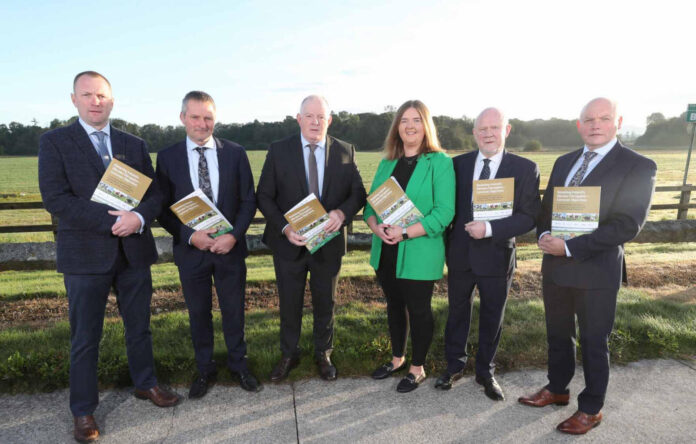
Six organisations in the agriculture sector came together earlier this week to issue a joint declaration, as a team of EU Commission officials visit the country this week.
A joint declaration from 6 organisations (farm organisations, co-operatives and the dairy and meat processors), namely Dairy Industry Ireland (DII), the Irish Co-operative Organisation Society (ICOS), Irish Creamery Milk Suppliers Association (ICMSA), Irish Farmers’ Association (IFA), Macra na Feirme and Meat Industry Ireland (MII), set out what the sector stands for and the process needed to ensure Ireland can maintain the Nitrates Derogation into the future.
The Nitrates Derogation is of huge importance to the Irish agri-food sector and the wider economy. The derogation allows our farmers to maximise the advantages of our grass-based system, while somewhat balancing the significant economic disadvantages they encounter compared to their European Union (EU) counterparts.
The dairy and meat sectors, including farm organisations, co-operatives and processors, are fully committed to working with the Government to formulate a clear plan to enable the EU Commission to extend Ireland’s Nitrates Derogation beyond 2025. The document attached sets out common objectives that the sector believes will deliver the renewal of the Nitrates derogation, while also protecting water quality.
VIABLE AND SUSTAINABLE FARMING
The Irish livestock and dairy sectors are fortunate to have a predominantly grass-based family farming system. The sector remains fully committed to water quality as demonstrated by the numerous measures implemented by farmers.
However, the removal of the Nitrates Derogation would have widespread negative economic consequences for Ireland’s rural economy with a potential multi-billion-euro annual economic impact. A whole-of-government approach is needed to prevent this from happening.
To support this, there is a clear determination by all parties in the agriculture sector to work with Government and other stakeholders to address this significant challenge.
Similarly, Teagasc’s ‘Better Farming for Water’ programme is leading a water quality advisory campaign to deliver clear, simple and positive messaging to support farmers. Achieving continuous water quality improvement must be led by scientific knowledge; improvement programmes; quality of knowledge transfer; and communications to farmers and other stakeholders. There will have to be a recognition that there will be a time lag before implemented actions have the desired impact on the ground.
Retaining the Nitrates Derogation is complementary to the ambition of protecting and improving water quality. Farmers availing of a derogation abide by a significant number of additional measures compared to those not availing of a derogation.
The implementation of the common objectives will deliver good water quality while also ensuring the family farm model remains not only viable, but sustainable, into the next decade and beyond. All parties are committed to working together to ensure this reality.







